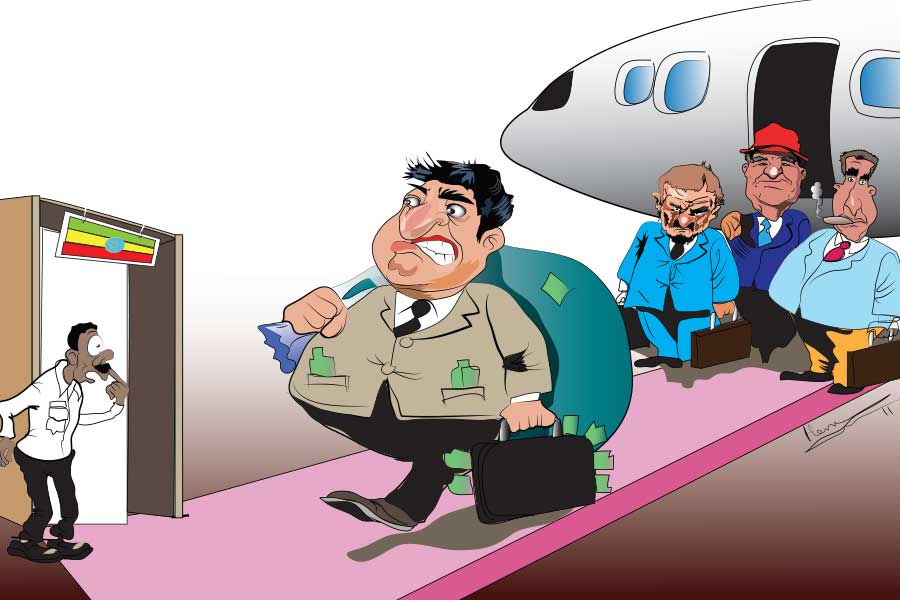
Oct 15 , 2022
By Landry Signé
The real game changer is the AfCFTA. Removing tariffs for a wide range of products across the continent will lower production costs and shift foreign direct investment towards manufactured goods. This, in return, will reduce transit costs and shorten supply chains, significant benefits in a globalised economy, writes Landry Signé, a professor and a managing director at Thunderbird School of Global Management and a senior fellow at the Brooking Institution.
Africa is on the cusp of an economic transformation. By 2050, consumers and businesses investing on the continent will reach roughly 16.1 trillion dollars.
The coming boom offers tremendous opportunities for global businesses, especially US companies looking for new markets.
But unless African policymakers remove existing barriers of regional trade and investment, the continent's economy will struggle to reach its true potential.
Two major trade agreements, the African Growth and Opportunity Act (AGOA) and the African Continental Free Trade Area (AfCFTA), make it easier for African countries to trade with one another and the United States. The agreements are promising to remove long standing impediments of industrialization.
AGOA, passed by the US Congress in 2000, gives countries in sub-Saharan Africa preferential trade access, allowing them to export duty free products to the US. Although AGOA expires in 2025, US president Joe Biden's sub-Saharan Africa strategy, unveiled in August, highlights its positive impact and promises to work with Congress on ways to proceed after it lapses. AfCFTA, on the other hand, is an intra-African trade agreement with no expiration date. Established in 2018, its goal is to deepen trade ties between African countries by removing tariff and non-tariff barriers.
Although these agreements' scope, focus, beneficiaries, and structure differ significantly, they are essential to strengthening African regional integration. Rather than viewing them as separate or competing agreements, policymakers and investors should recognise how they can complement each other in creating, sustaining, and transforming value chains across the continent.
Value creation is critical to Africa's economic transformation. In 2014, manufactured goods accounted for about 41.9pc of the trade between African countries, compared to 14.8pc of their exports to the rest of the world. Greater regional integration will provide Africa with a larger supply market, accelerating manufacturing specialisation and making African producers more competitive globally. More robust manufacturing industries will provide jobs for low-skilled workers, particularly those not integrated into the formal economy currently.
AGOA has already created some opportunities for cross-border value chains. Yet, despite some success stories like Madagascar's apparel industry, which relies on an extensive regional supply chain, such opportunities remain limited. While integration has improved since AGOA's implementation, particularly since 2015, it remains somewhat superficial. Less than 17pc of Africa's commercial value is currently generated through intra-African trade.
The real game changer is the AfCFTA. Removing tariffs for a wide range of products across the continent will lower production costs and shift foreign direct investment towards manufactured goods. This in return will reduce transit costs and shorten supply chains, significant benefits in a globalised economy.
The International Monetary Fund (IMF) predicts that under the AfCFTA, Africa's expanded goods and labour markets will become more efficient, driving significant competition between the countries. By creating a true continental market that prompts a higher rate of intra-African trade, the AfCFTA will likely provide a further incentive to US-based multinationals.
Effective regional integration is essential for Africa. Without it, the continent will continue to be overlooked and outpaced globally in manufacturing, information technologies, and agriculture. When considering the future configuration of AGOA and the AfCFTA, policymakers should regard them as complementary mechanisms for ensuring Africa's long-term economic development.
PUBLISHED ON
Oct 15,2022 [ VOL
23 , NO
1172]


Viewpoints | Oct 12,2024

My Opinion | Mar 01,2024

Commentaries | Dec 30,2023

Commentaries | May 31,2020

My Opinion | Aug 19,2023

News Analysis | Oct 20,2024

Viewpoints | Dec 04,2021

Agenda | Jul 27,2019

My Opinion | Apr 20,2024

Viewpoints | May 11,2023

Photo Gallery | 174179 Views | May 06,2019

Photo Gallery | 164404 Views | Apr 26,2019

Photo Gallery | 154543 Views | Oct 06,2021

My Opinion | 136650 Views | Aug 14,2021
Editorial | Oct 11,2025

Dec 22 , 2024 . By TIZITA SHEWAFERAW
Charged with transforming colossal state-owned enterprises into modern and competitiv...

Aug 18 , 2024 . By AKSAH ITALO
Although predictable Yonas Zerihun's job in the ride-hailing service is not immune to...

Jul 28 , 2024 . By TIZITA SHEWAFERAW
Unhabitual, perhaps too many, Samuel Gebreyohannes, 38, used to occasionally enjoy a couple of beers at breakfast. However, he recently swit...

Jul 13 , 2024 . By AKSAH ITALO
Investors who rely on tractors, trucks, and field vehicles for commuting, transporting commodities, and f...

Oct 11 , 2025
Ladislas Farago, a roving Associated Press (AP) correspondent, arrived in Ethiopia in...

Oct 4 , 2025
Eyob Tekalegn (PhD) had been in the Governor's chair for only weeks when, on Septembe...

Sep 27 , 2025
Four years into an experiment with “shock therapy” in education, the national moo...

Sep 20 , 2025
Getachew Reda's return to the national stage was always going to stir attention. Once...

Oct 12 , 2025
Tomato prices in Addis Abeba have surged to unprecedented levels, with retail stands charging between 85 Br and 140 Br a kilo, nearly triple...

Oct 12 , 2025 . By BEZAWIT HULUAGER
A sweeping change in the vehicle licensing system has tilted the scales in favour of electric vehicle (EV...

Oct 12 , 2025 . By NAHOM AYELE
A simmering dispute between the legal profession and the federal government is nearing a breaking point,...

Oct 12 , 2025 . By NAHOM AYELE
A violent storm that ripped through the flower belt of Bishoftu (Debreziet), 45Km east of the capital, in...